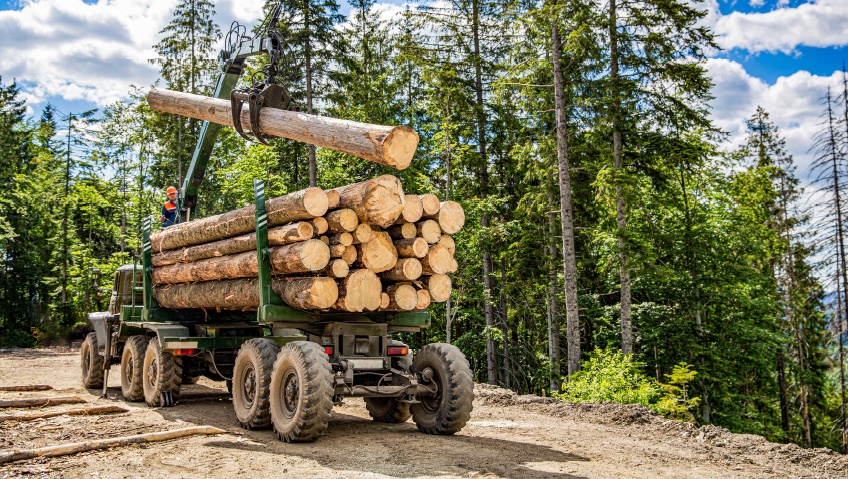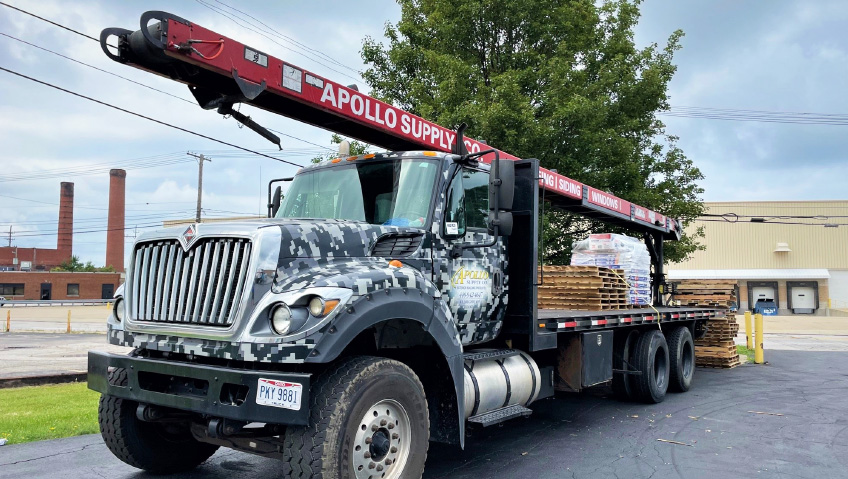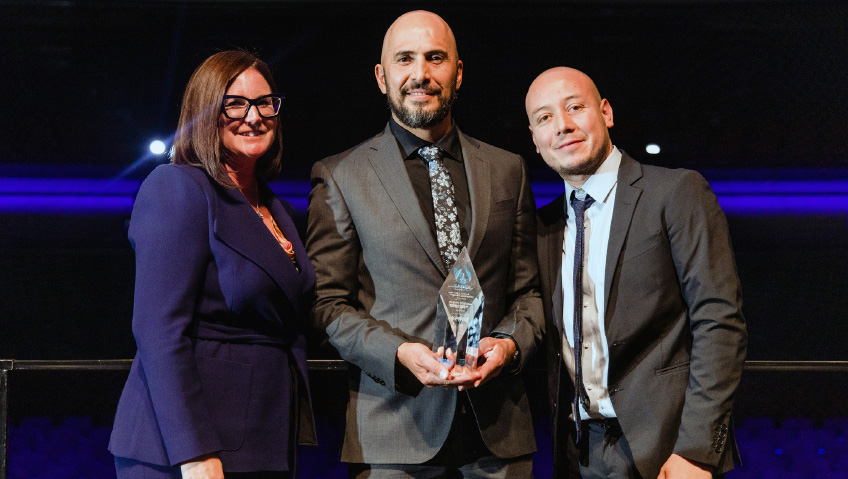Recently celebrating 80 successful years in business, Zip-O-Log Mills, Inc. remains an American lumber industry leader. The world has changed considerably over the decades, yet this family-owned sawmill business continues building a legacy in the Pacific Northwest, serving customers with pride, professionalism, and dedication.
A family success story
Based in Eugene, Oregon, Zip-O-Log Mills remains true to its community and family roots. Now in its fourth generation of family ownership, Zip-O-Log’s senior management includes Chief Executive Officer James Workman, President Karl Hallstrom (the third generation), Vice President KayCee Hallstrom, and KelCee Hallstrom, who serves in the role of Secretary Treasurer. A combination of dedicated, highly experienced employees and the latest technology ensures the company remains at the forefront of the lumber industry.
Founded in Coburg, Oregon by Al Hallstrom and George Campbell in 1944, Zip-O-Log Mills’ rich legacy is one “rooted in hard work and adaptability,” according to the company. Soon after it was created, Al’s son Bill joined the growing business. By 1951, the company moved to its present site in Eugene.
Like other successful businesses, Zip-O-Log Mills was not immune to hardship. Despite a mill fire in early 1962, the resilient company rebuilt and was back in operation just a few months later. Continuing to expand, the business soon welcomed other family members, including Bill’s brother, and Al Hallstrom’s son, A.B., as accountant, and Bill’s son, Karl Hallstrom, along with Jim Hallstrom.
For years, Zip-O-Log Mills has recognized the importance of not only keeping up, but staying ahead of the competition. In the ’80s, the company ushered in “a new era of precision and efficiency at the mill,” when it invested in new log scanning equipment. This was followed years later with upgraded scanning technology, which enabled the company to cut timber 52 feet (almost 16 meters) in length. The ’80s and ’90s also saw Zip-O-Log Mills acquire Pennington Crossarms—expanding its utility sector expertise—and a second location in South Carolina, which enabled the company to enter the southern yellow pine crossarm market.
The ensuing years have seen the company achieve other milestones, including Bill Hallstrom’s being named Lumberman of the Year by the Portland Wholesale Lumber Association. 2016 saw the establishment of sister company Zip-O-Laminators, which produces custom glulam beams. To date, these glulam beams have been used on projects including the University of Southern Maine Career & Student Success Center, the Rogue Credit Union Community Complex, the Avalon Bothell Commons Clubhouse, and, most notably, the Portland Airport expansion in Portland, Oregon. “This expansion reinforced the company’s commitment to innovation and diversification within the industry,” states the company, adding that the 2017 sale of Pennington Crossarm allowed Zip-O-Log Mills “to focus its resources on core operations and new ventures.”
The latest—but certainly not last—chapter in the Zip-O-Log Mills story came in 2021. That year, Karl Hallstrom welcomed daughters KayCee and KelCee to the company as co-owners, “ensuring the continuity of family leadership and a commitment to the values that have defined the company for 80 years.”
Meeting your lumber and glulam needs
Decades of experience, investment in technology, and a passion for the industry continue to make Zip-O-Log Mills the best choice for its many customers. These reasons, and many others, are why clients put their trust in Zip-O-Log Mills for their posts and beams, crossarms, and specialty timber needs. Not all sawmills have the company’s long length sawmill capabilities or years of experience with high-quality Douglas Fir products.
Selling #1 and better free-of-heart center timbers and boxed heart timbers used on exposed structures, the company applies anti-stain and a clear wax base end seal to all rough wood products and surfaced timbers. Other options include anti-stain treatment on surfaced products, bottom boards and paper wrapping to protect products, and lath or kiln stickers on every layer. And to ensure products are received as needed, the company can ship via truck or rail.
In the posts and beams category, Zip-O-Log Mills carries a wide assortment of products. These include timber framing and kiln dried timbers, joists and stringers, domestic clears, and 3” and 4” structural wood. In the specialty timbers category, the company works with customers to meet their particular needs. Investment in up-to-date kilns means Zip-O-Log Mills can also offer clients quality, kiln dried wood products.
The company carries industrial-grade woods, utility heat treat S4S (surfaced on four sides), #1 and Btr FOHC Full Sawn Rough Green Kiln Dried (4’ mults), #1 and Btr FOHC Full Sawn Rough Kiln Dried, and more. Sizes vary depending on the product. Economy S4S Green, for example, is available in 1×4-6 8’-20’ and 2×4-12 8’-24’ sizes, while Utility Heat Treat S4S can be had in 3×4 8’-24’ and 4×4 8’-24’.
For Zip-O-Laminators, the saying is, “Operating Between the Improbable and the Impossible.” Zip-O-Laminators takes it to heart, and is always willing to tackle any project and give you a true assessment and way to do it. As long as it is Douglas Fir or Alaskan Yellow Cedar, the plant can make a beam 115 feet long, 111 inches deep, and 32 inches wide. See the company case study of PDX to explore one of its most complex jobs to date.
Respecting the planet
Producing both green and kiln dried timbers, Zip-O-Log Mills’ products are typically sold in 8-to-24-foot increments, all the way to 52 feet. Specializing in 100 percent Douglas Fir means the company provides purchasers with high-quality, consistent products. Timber is not sold to the public or contractors, but can be purchased from one of the company’s distribution partners. Depending on customer need, partial truck orders from Zip-O-Log Mills can be combined with an order from sister company, Zip-O-Laminators, and “we encourage you to bundle your shipments to save on transportation costs.”
At Zip-O-Log Mills, nothing goes to waste; in fact, the company is proud to state, “100 percent of every log is used.” Bark and chips are sold to landscaping companies, and—owing to their high quality—serve as playground cushioning. Blueberry farmers use wood shavings, as the resin helps the berries grow. And low-grade wood is given a second life, made into pallets or concrete forms.
Following in the footsteps of founders Al Hallstrom and George Campbell, the Hallstrom family and their staff look forward to serving the wood product needs of customers for the next 80 years… and beyond.






